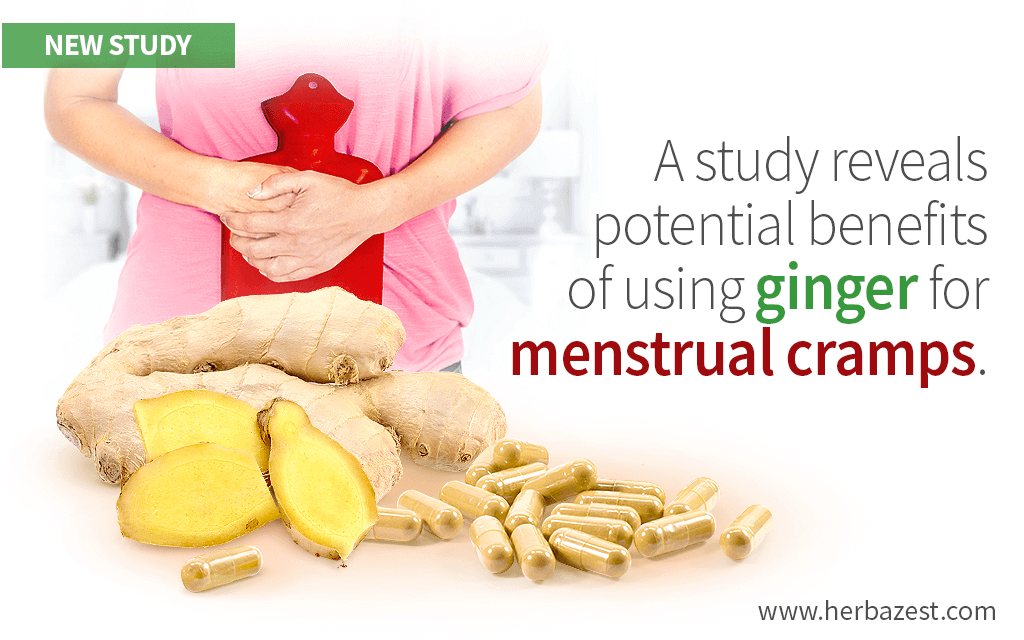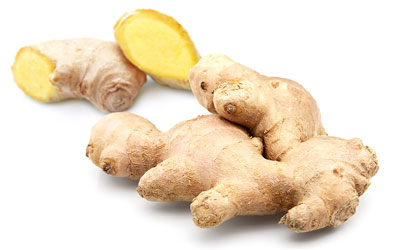Dysmenorrhea, a medical term for painful periods, leaves millions of women physically disabled and emotionally drained for several days every month. While the exact cause of primary dysmenorrhea is not fully understood, an overproduction of prostaglandins in the uterus are the most probable culprit.1 Standard treatment consisting of non-steroidal anti-inflammatory drugs (NSAIDs) is suitable for all affected women.
Folk uses of herbs for relieving painful menstruation date back to thousands of years ago. As one of the most widely used medicinal herbs, ginger has been studied for its potential analgesic actions.2 However, there were no conclusive results to date regarding the benefits of ginger for menstrual cramps.
Consequently, this study focused on evaluating ginger's effects on relieving pain in primary dysmenorrhea.
The Study
This 2012 randomized, controlled trial took place at the Shahed University dormitories in Tehran, Iran. Its results were published in the BMC Complementary Medicine and Therapies journal.
The trial recruited a sample of 105 university students with moderate to severe primary dysmenorrhea. They were randomly assigned to two groups. The intervention group consumed 500 mg ginger root powder capsules three times a day (1500 mg daily) and placebo, while the control group took placebo capsules three times daily.
Both groups underwent two treatment protocols:
Treatment protocol 1: Participants started taking the capsules two days before the onset of a period and continued taking them for three days into the period.
Treatment protocol 2: Both groups took capsules only for the first three days after the onset of their periods.
The severity and duration of menstrual pain was measured through a verbal multidimensional scoring system (with four grades from painless to severe pain) and a visual analogue scale (VAS).
The Results
It has been found that the severity of pain in the ginger-taking group was reduced by 1.4 and 2 points (VAS) for both protocol 1 and 2, respectively.
Overall, it was calculated that the ginger group participants experienced a shorter duration of period pain by 11 hours in comparison to those in the placebo group.
5.1% of the participants on ginger capsules reported heartburn, and 8.7% of placebo-taking participants experienced nausea.
What Does this Mean?
The results of this study show that taking ginger is effective for reducing the severity and duration of menstrual pain. More significant improvements in terms of pain duration were shown when ginger was taken a few days before and then continued for the first few days after period onset.
Being able to alleviate period cramps naturally with ginger can help women avoid depending on pharmaceuticals options, such as NSAIDs, and suffering from their associated side effects.
More studies are required to determine adequate dosage for more standardized use of ginger for menstrual cramps.
Other herbs beneficial for feminine health may include maca, oregano, and chasteberry.
Sources
- BMC Complementary Medicine and Therapies, Effect of Zingiber officinale R. rhizomes (ginger) on pain relief in primary dysmenorrhea: a placebo randomized trial, 2012
Footnotes:
- American College of Obstetricians & Gynecologists. (n.d.). Dysmenorrhea: Painful Periods. Retrieved September 11, 2020 from https://www.acog.org/patient-resources/faqs/gynecologic-problems/dysmenorrhea-painful-periods
- The Journal of Alternative and Complementary Medicine. (2009). Comparison of Effects of Ginger, Mefenamic Acid, and Ibuprofen on Pain in Women with Primary Dysmenorrhea. Retrieved September 11, 2020 from https://www.liebertpub.com/doi/10.1089/acm.2008.0311





